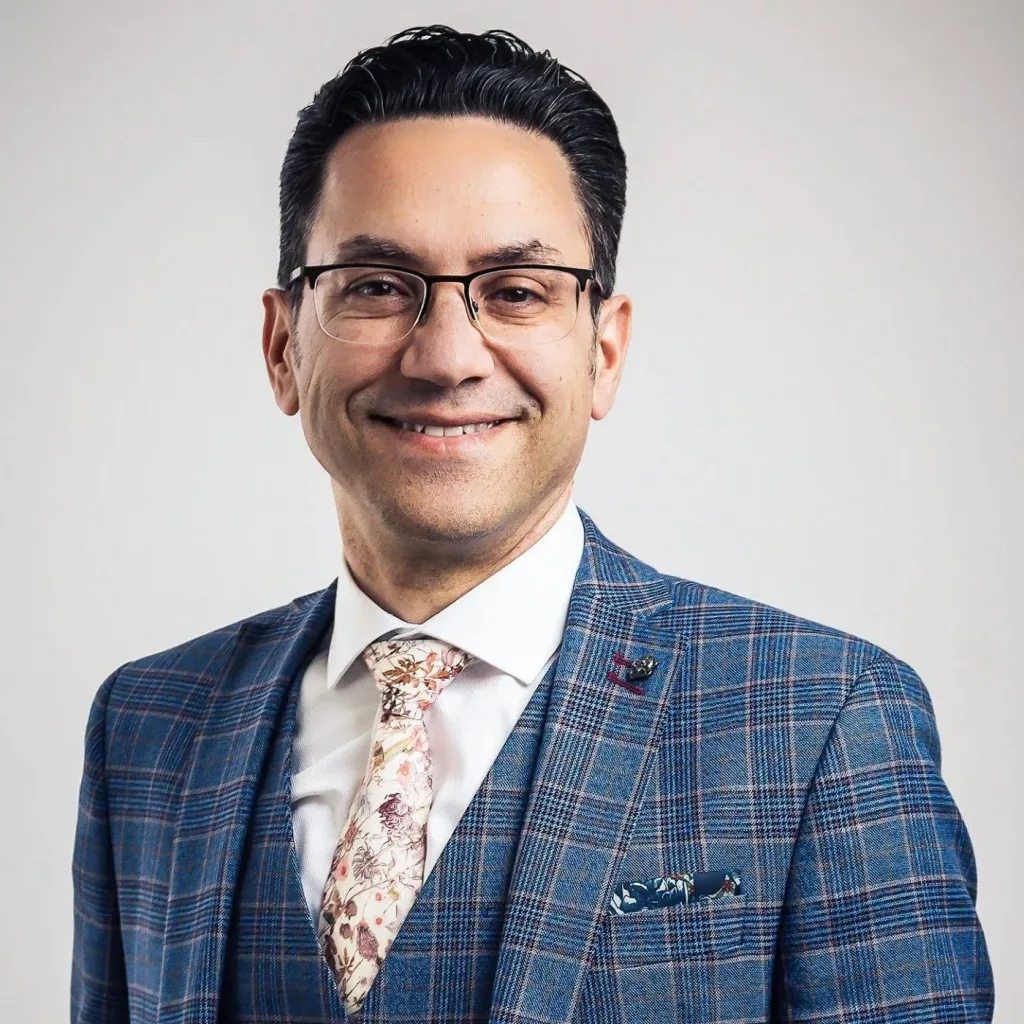Rosacea is an inflammatory skin condition that has long-term effects on the face. It can present with skin redness, pustules similar to acne, visible blood vessels, and thickening of the skin. Many patients look to targeted laser rosacea treatments to manage these symptoms, as the combined use of Nd: YAG and Er: YAG modalities are proven to be a highly effective method for improving the appearance of rosacea.
This article explores rosacea laser treatment cost and details the factors that contribute to price. It will also explore some of the most common queries people have about rosacea treatment.
The CREO Clinic’s specialists are experienced in administering laser treatments using the Fotona SP Dynamis laser, working to reduce the appearance of broken capillaries, acne breakouts, and redness. Having successfully treated countless patients of different skin types with rosacea, our specialists can make quick and accurate assessments of skin ailments, then formulate a personalised treatment plan to meet your needs.
Contact the CREO Clinic today to book your initial consultation with our specialists and find out how laser therapy can treat your rosacea.
How Much Does Laser Treatment for Rosacea Cost?
At the CREO Clinic the price of laser rosacea treatment begins from £325 for a single session targeting half of the face. For three sessions treating half the face, prices begin from £1,095.
Should your rosacea affect your full face, a single session is £425, and a three-session package is £875.
Should you wish to spread the cost of your rosacea treatment over multiple instalments, our financing partner, Chrysalis Finance, offers a variety of payment options.
Factors Affecting the Cost of Rosacea Laser Treatment
Areas treated
The CREO Clinic offers full-face or half-face treatments, as some rosacea patients find that their symptoms are localised to only one-half of the face. A half-face treatment costs less than a full-face treatment as your sessions will be shorter.
Severity of Your Rosacea
Rosacea symptoms come in varying degrees of severity, with severe symptoms requiring more sessions of laser treatment than milder ones. Symptoms generally affect the nose and cheeks with redness, pustules and acne-like spots, and visible blood vessels (telangiectasia) – in general, the more prominent the symptoms, the more sessions will be necessary.
Number of Sessions
To achieve optimal results using rosacea laser treatment, our specialists recommend three sessions set apart by 4-6 weeks. For this reason, the CREO Clinic offers a discounted price on three sessions booked in advance.
As rosacea treatment is not permanent, future maintenance sessions may be necessary to manage the reappearance of symptoms.
Can Lasers Treat All Stages of Rosacea?
There are four main stages of rosacea: pre-rosacea, mild rosacea, advanced rosacea and severe rosacea. Intense pulsed light laser treatments can successfully treat all of these stages, but when symptoms are more severe, more sessions may be necessary to fully resolve the issue.
Is Laser Treatment for Rosacea Worth it?
For many patients, laser treatment for rosacea is a worthwhile endeavour due to its effectiveness and very low risk of skin damage. Our patient feedback for rosacea treatments has been excellent and suggests that the benefits of laser rosacea treatment can be significant, consistently producing clearer skin while reducing redness and pustules and restoring the skin to a smoother, more evenly coloured tone.
Does Laser Treatment for Rosacea Last?
Rosacea treatment does have long-term effects, but it is not permanent. Generally, our specialists recommend additional sessions of laser treatment every 12-18 months in order to maintain the improvements made in the initial sessions.
Different Treatments Available for Rosacea
There are some common non-laser treatments available for rosacea, such as:
- Creams and gels – Some topical therapy creams and gels are able to reduce inflammation and pustules on the skin. Metronidazole is a commonly use cream, and also ivermectin, which is a newer alternative. These treatments are used for mild rosacea.
- Oral antibiotics – Oral antibiotics are sometimes prescribed in extreme cases of rosacea – i.e., severe rosacea.
- Trigger management – Adjusting lifestyle factors and avoiding the triggers that make your rosacea worse, such as alcohol, hot drinks or spicy foods, sun exposure, or excessive exercise, can help manage the symptoms of your rosacea.
Our specialists have a great deal of medical expertise with all the different treatments used for rosacea. During your initial consultation, she will walk you through all of your treatment options and decide which ones will be most effective for you.


